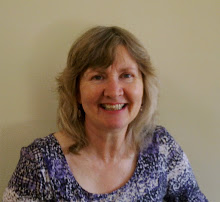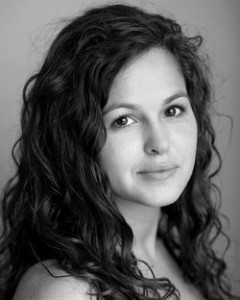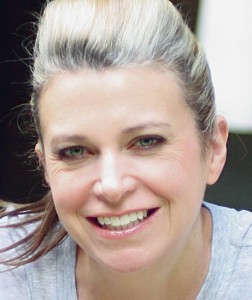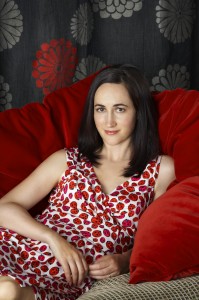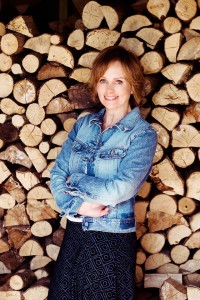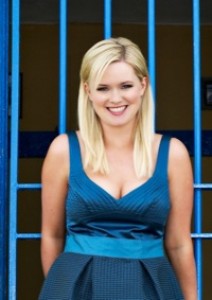NaNoWriMo Advice: Louise Dean Says Short Sentences Can Be A Powerful Tool

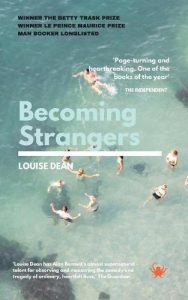 As we reach the final few days of National Novel Writing Month 2017, Louise Dean, author and founder of online writing course Kritikme.com joins me to share her insights into why using short sentences is a powerful tool when writing a novel. Thank you for joining me today Louise. Over to you.
As we reach the final few days of National Novel Writing Month 2017, Louise Dean, author and founder of online writing course Kritikme.com joins me to share her insights into why using short sentences is a powerful tool when writing a novel. Thank you for joining me today Louise. Over to you.
Short Sentences. (BANG!)
Creating Impact.
We can’t always be poetic. We cannot always find a new way of saying things. But if we offer visual images in short sentences, we can create an effect on our readers that is an assault on their senses. Think Bob Dylan.
One short sentence hard on the heels of the last is a highly engaging way to write. It forces the reader into a world that is unfolding with immediacy, speed, possibly danger. Wham. Slam. Bang. Things are happening fast as in an emergency. The story is unfolding. The reader is alert.
Short & Sweet
The most economical short story writer of all time is probably Raymond Carver. With his precise, punchy prose, he conveys in a few words what many novelists take several pages to elucidate. In stories such as ‘Fat’ and ‘Are You a Doctor?’ he writes with understatement about suburban disenchantment in mid-century America.
I’d like to share with you the two things that made his short stories works of art.
- At the end of every short story – as in the first chapter of a novel – EVERYTHING HAS CHANGED.
- Carver’s genius was to incorporate here what happens in the last chapter of a novel which is the narrator is facing life after him or her – THE ANNIHILATION OF SELF.
These themes can be served, should be served, in staccato sentences for great power.
Make it shorter.
‘Remember that two great masters of language, William Shakespeare and James Joyce, wrote sentences which were almost childlike when their subjects were most profound. ‘To be or not to be?’ asks Shakespeare’s Hamlet. The longest word is three letters long.’ Kurt Vonnegut
Vonnegut employs a choral technique from the songbook of modern music too, with repetition of an almost biblical phrase ‘So it goes’ throughout Slaughterhouse-5.
When Kurt Vonnegut uses that sentence again and again throughout Slaughterhouse-5, setting it against the backdrop of one of the worst tragedies of WWII — the firebombing of Dresden — the fatalistic attitude of that short sentence provides a hard contrast to the horrific details of Dresden.
My Writing Ramblings: Reflections on National Novel Writing Month 2015
 Wow. We’ve reached December. My countdown to Christmas has begun. My Christmas Card list has been made (and they sit on the side waiting to be done.) I have my beautiful Christmas tree up (nothing like a real one) and I can legitimately sing Christmas songs without getting funny looks from people (well, kind of. My singing is terrible.)
Wow. We’ve reached December. My countdown to Christmas has begun. My Christmas Card list has been made (and they sit on the side waiting to be done.) I have my beautiful Christmas tree up (nothing like a real one) and I can legitimately sing Christmas songs without getting funny looks from people (well, kind of. My singing is terrible.)
This time of the year also means that National Novel Writing Month is once again over for another year. I always have a mixture of emotion when I finish NaNoWriMo. On the one hand, I am relived and pleased that it is done. 1,667 words a day is a lot to commit to and it is easier said than done to reach on a daily basis when all you want to do is curl up and sleep or have family commitments or in my case, a holiday. On the other hand though, I am sad it is over. By now, I am in the bubble of the NaNoWriMo thing. I have got into the swing of my story. It is around now that I am past the moments where I have found it hard going and the threat of my laptop meeting my wall have been temporarily suspended.
A Moment With…Talli Roland
 Day thirty of National Novel Writing Month. Earlier, author Julie Cohen took us through her editing process and now Talli Roland talks to us about her experience with self publishing.
Day thirty of National Novel Writing Month. Earlier, author Julie Cohen took us through her editing process and now Talli Roland talks to us about her experience with self publishing.
Self-publishing provides another route for authors to get their books directly to an audience. I think it’s wonderful to be living in a time when authors have choices. No longer do they need reach readers through a publisher – they can decide what is right for them and for the book.
I had a wonderful relationship with my publisher, but as a small independent, their distribution reach was limited. Most of my sales were ebooks, and I’d spent a great deal of time building up my platform. It made sense for me to go out on my own, hire a cover designer and an editor, and keep my profits. It was very scary jumping ship – jumping off the ship! – but I’m so pleased I did.
It’s been an amazing journey – hard, challenging, and somewhat obsessive – but I’ve really enjoyed having control over everything from cover to content to timelines. And it’s been wonderful to make living from writing, too. That said, like any business, sales can fluctuate, depending on many factors. You don’t have the security of an advance from a publisher, so that can be a little daunting.
A Moment With…Julie Cohen
 This is it. Day thirty of National Novel Writing Month. Well done to all who have finished, good luck to all the people who are still going and if you didn’t manage it, you’ve still got words written that you didn’t have when you began which is fantastic. Today, Julie Cohen joins us to chat about her editing process (she uses Post-its and I have to say I like her style.)
This is it. Day thirty of National Novel Writing Month. Well done to all who have finished, good luck to all the people who are still going and if you didn’t manage it, you’ve still got words written that you didn’t have when you began which is fantastic. Today, Julie Cohen joins us to chat about her editing process (she uses Post-its and I have to say I like her style.)
After I’ve finished the first (very rough) draft of my novel, I usually have a list of all the things I want to change. I write it all down as instructions to myself.
After that, I often spend some time analysing what I’ve written. I find that Post-Its are really handy for this. I outline the entire book, event by event, using colour-coded Post-Its for each story thread. Then I arrange in them in order on the wall, or on paper.
This method lets me see all of the story at a glance. It can make it much easier to understand where you’ve got problems, and to see where new parts can fit, or irrelevant parts need to be cut.
Here’s a picture of one of my novels after it’s had the Post-It treatment.
Julie is the best-selling author of Getting Away With It and Dear Thing and Where Loves Lies (which was released by Bantam Press on 31st July.) To find out more about Julie, visit her website: http://www.julie-cohen.com
A Moment With…Jane Fallon
 Jane Fallon’s books include Getting Rid of Matthew, Foursome and Got You Back. Her latest, Skeletons was released by Penguin earlier this year. She’s also a producer whose credits include Teachers and This Life. On day twenty-nine of National Novel Writing Month, she talks to us about supporting characters:
Jane Fallon’s books include Getting Rid of Matthew, Foursome and Got You Back. Her latest, Skeletons was released by Penguin earlier this year. She’s also a producer whose credits include Teachers and This Life. On day twenty-nine of National Novel Writing Month, she talks to us about supporting characters:
Your supporting characters create your world. They’re your colour and texture. Without them your book will feel two-dimensional and flat. Every character, however small a part they play needs to feel authentic and alive. It’s always a temptation to try to use shorthand to get across a character who is only going to appear a few times in your book. Everyone understands a cliche. But if you do that your reader is going to lose their sense of disbelief. You’ve asked them to immerse themselves into the world you’ve created so it’s important that world never feels cliched or flimsy. Make sure they’re as real as your leads.
Lesser characters can also be like a breath of fresh air – light relief, a pause from the intensity of the main story. They can throw a different light on your main characters. allowing us to see our heroes in a different way. They are what makes us feel we have entered a world that exists whether we’re there or not. Don’t underestimate them.
To find out more about Jane, visit her website: http://www.janefallon.co.uk
A Moment With…Cathie Hartigan
National Novel Writing Month finishes tomorrow. I can’t believe we are almost at the end of another year. I hope you’ve had a good month. If you’re still going; that 50,000 word goal still being elusive, you can do it! Today, Cathie Hartigan talks about whether there is a right place to write:
Is there a right place to write? Perhaps there is, but it certainly isn’t the same place for everyone. I’ve met writers who can only work in a café or with the television on and those who need complete silence and become all night long writers. My friend and colleague, novelist Sophie Duffy writes in a lovely shed at the bottom of her garden, although she also recommends writing in bed. Hopeless for me! I fall asleep almost immediately.
My writing space is doubles as the HQ for CreativeWritingMatters and it’s chock full of files, books, several computers and stationary for England. We all know writing is sedentary so in order to get some exercise and not be distracted by a sudden need to turn on the washing machine, I take myself to the wonderful Devon and Exeter Institution (it’s a library, honest!) as often as I can. There I can sit at a huge mahogany table, which has nothing on it except a fabulous shine. Perfect. I’m nose to screen until from across the green I hear the Cathedral clock strike five and it’s time for the library to close.
A Moment With…Suzanne McCourt
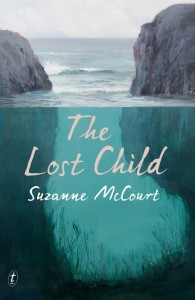
 Suzanne McCourt also joins us on day twenty-seven of National Novel Writing Month. Her debut novel, The Lost Child has been released today. She shares with us her writing process and route to publication.
Suzanne McCourt also joins us on day twenty-seven of National Novel Writing Month. Her debut novel, The Lost Child has been released today. She shares with us her writing process and route to publication.
It took me almost ten years to write The Lost Child, in part because I tried to control the process: I thought writing came from my head and it took some time to discover that it needed to come from my heart. Losing my mother and having four family deaths within eight months, taught me a lot about letting go of control. So did Barbara Turner-Vesselago’s freefall writing workshops. But it was only when I let myself trust the voice of a child who’d tried to take over a previous novel—only when I allowed Sylvie to tell her own story—that The Lost Child began to unfold without interference from me.
Nabokov suggests that a writer is part storyteller, teacher and enchanter, and that by far the most important of these is enchanter. One of the great joys of writing from Sylvie’s perspective was that I was able to enter a child’s world of innocence, spontaneity, vulnerability and humour and lose myself in the process.
A Moment With…Ali McNamara
 Day twenty-seven of National Novel Writing Month and Ali McNamara joins us today to talk about returning to a character.
Day twenty-seven of National Novel Writing Month and Ali McNamara joins us today to talk about returning to a character.
It’s lovely to write again about a bunch of characters you’ve got to know in a previous book. It’s like meeting up with old friends again, and that’s exactly how I feel when I return to Scarlett and her Notting Hill friends.
I’ve written about them three times now, and it becomes easier with every book. Both you and the reader already know so much about each character, that you know just how they’ll behave in every situation.
There aren’t many drawbacks – trying to keep a new reader who might not have read the other books in the series, up to date with what’s gone on in previous stories is probably the trickiest thing, as you don’t want to bore fans of the series with lots of information they already know. But hopefully I usually find a way to suit all!
I love writing the Notting Hill series, and I really hope to write more in the future.
Ali is the author of the Notting Hill series which include From Notting Hill with Love Actually, From Notting Hill to New York, Actually and her new novel, From Notting Hill with Four Weddings Actually which was released by Sphere in October.
To find out about Ali and the fantastic Notting Hill series, visit her website: www.alimcnamara.co.uk
You can also follow her on Twitter @AliMcNamara
A Moment With…Tracy Buchanan
 NaNoWriMo is almost over. Most of you will be almost at the end. Tracy Buchanan talks to us about plot twists.
NaNoWriMo is almost over. Most of you will be almost at the end. Tracy Buchanan talks to us about plot twists.
The best plot twists are the most believable ones. Don’t you hate it in novels or films where a twist is thrown in for the drama, and while it might be a ‘wow, really?’ moment, it doesn’t feel true to the characters as it sinks in.
The actions that lead to that twist need to be completely convincing and not out of character. Subtle hints (foreshadowing, as we call it) need to be littered throughout the novel, so subtle that it’s only when you read those final pages that you realise how it all ties together.
A little technique I use (and this doesn’t just apply to plot twists, it can also apply to ‘reveals’ in general, so elements of information held from the reader until later on) is to list the reveals I want to unveil. Then beneath each one, list how I can hint at these reveals throughout the novel without giving anything away.
A Moment With…Portia MacIntosh
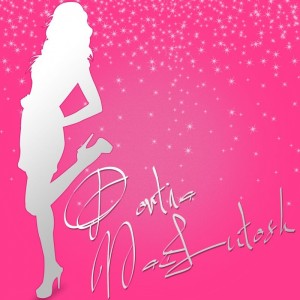 With NaNoWriMo, the pressure to write anything in the thirty days is tough. Should you make it easier for yourself and write what you know? Does it help or hinder your writing? Portia MacIntosh tells us whether she thinks it does or doesn’t…
With NaNoWriMo, the pressure to write anything in the thirty days is tough. Should you make it easier for yourself and write what you know? Does it help or hinder your writing? Portia MacIntosh tells us whether she thinks it does or doesn’t…
Stick with what you know, that’s what they say. Well when it comes to writing, sticking with what I know is something that has served me well so far.
The truth is that I never set out to become a writer, it just sort of happened. As a teenager I got ‘in’ with a few pretty big bands at the time. This lead to me spending a lot of time around touring musicians and eventually getting a job in the industry. With lots of cool stories to tell and lots of empty hours waiting around for soundchecks or struggling to sleep on the tour bus, I started thinking about ways to show people what life behind the scenes was like – not the approved version you read about in autobiographies or see in documentaries – and I knew that it was important to keep things anonymous, lest I get sued or, even worse, kicked out of the inner circle and no longer invited to the cool parties.
It was during the writing of my first two books about the music industry that I realised I loved telling stories, and that I wanted to write lots more books about lots of different things. That’s when I realised that I didn’t need to keep writing about showbiz to benefit from letting my real life influencing my fictional work. You don’t need an unusual job or to have been through something out of the ordinary, anyone can let their day-to-day life influence their writing. Here are some of the pros and cons.
A Moment With…Sue Watson
 Day twenty five of NaNoWriMo. Only five days left. Today, Sue Watson tells about whether she thinks character or plot is more important.
Day twenty five of NaNoWriMo. Only five days left. Today, Sue Watson tells about whether she thinks character or plot is more important.
If a great character doesn’t have a reasonable plot it won’t work and at the same time, if a fantastic plot has cardboard characters then neither will work, so it’s a tough question. However, if I had to choose, I’d say for me the character is absolutely the most important. Well developed, believable characters drive the plot, and sometimes even change the direction of a novel.
I always plan a novel through my main character or characters; for me it may be a woman who has a problem/ a sadness/ or something in her past that has brought her to this point and causes her to behave in a certain way. I like to know my character’s star signs, their favourite colours, foods and preferred music – all these elements help to build the character and help me to imagine their choices and the way they live. It may never be necessary to reveal all this minutiae to the reader – but it helps me as the writer to really get under my character’s skin, create realistic dialogue and decide how they would react to a situation or another person.
A Moment With…Rob Pateman
Author, Rob Pateman is with us today (day 24 of NaNoWriMo,) to talk about creating believeable characters.
The grit in the oyster cell makes the pearl – and it’s the friction between the antagonist and the protagonist that lies at the heart of a good book.
The conflict between them drives the narrative, so establish early on what’s at stake for both characters. It could be life or death, financial ruin, the moral high ground, the end of civilisation as we know it, property, family happiness or something more tenuous, like love or truth.
With the basic tension set up, your characters’ personalities, attitudes, beliefs, and life circumstances will begin to follow. One might be demure, conventional, social and funny. The other more calculating, secretive and moody. And the social and funny one might not necessarily be your protagonist!
People aren’t all black and white – so your characters can’t be either. There has to be some light and shade to make them believable and make your readers more likely to engage with them.
Rob writes under the name, R.S Pateman and is the author of The Second Life of Amy Archer. His new book, The Prophecy of Bees was released earlier this month (both published by Orion.) For more information on Rob and his novels, visit his website: http://rspateman.com/
A Moment With…Kelly Florentia
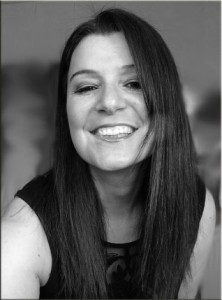 Kelly Florentia is the second author to join us today for our collection of posts to coincide with NaNoWriMo. Kelly joins us to talk about short stories.
Kelly Florentia is the second author to join us today for our collection of posts to coincide with NaNoWriMo. Kelly joins us to talk about short stories.
I love reading short stories. There’s something quite gratifying about a sharp, tight tale with a satisfying or clever ending. Although not as widely read as novels, short stories are a lot more prominent than some people may think. Breakfast at Tiffany’s is a film adaptation of Truman Capote’s novella (1958). And Alfred Hitchcock’s 1963 classic The Birds was inspired by Daphne Du Maurier’s short story of the same name taken from her anthology The Apple Tree (1952). Oscar Wilde, one of my favourite authors of all time, mainly wrote plays and short stories.
Producing fine, short literature requires great skill and tenacity. Unlike a novel, you only have a few hundred or a few thousand words to create a strong, believable plot with convincing characters and a fulfilling conclusion. Your aim is to engage readers within the first sentence, keep them connected, and not let them down in the last paragraph with a poor or predictable finish. Most of the stories I write have a twist or surprise ending simply because that’s what I like to read, but not all short stories need to take this form. Stories can be humorous, moving, romantic, inspirational or chilling. But, primarily, they must be entertaining.
Personally, the most challenging aspect of short story writing is coming up with new ideas. Magazine editors are always on the lookout for fresh material, and the last thing you want is for your reader to find your story predictable or worn. So when ideas arise I jot them down and work on them later. Ideas are everywhere. A comment someone makes, a newspaper article, a conversation, something I see on T.V. or read on the internet.
A Moment With…Christina Jones
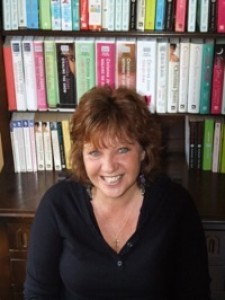 In our second post today to coincide with National Novel Writing Month, we talk to author, Christina Jones about her route to publication and how all started with a boy called Tony…
In our second post today to coincide with National Novel Writing Month, we talk to author, Christina Jones about her route to publication and how all started with a boy called Tony…
My route to publication was – to quote every contestant X-Factor has ever had – a bit of a roller-coaster… And a lifelong roller-coaster at that… I’d always enjoyed writing stories and making things up, and I had my first short story published when I was 14 (in a teenage magazine – remember them?). I wrote about Tony from the chip shop who I was madly in love with and who ignored me and went out with my best friend instead. I poured every bit of teenage heartbroken angst into that story I can tell you! I sent it to the magazine without ever thinking it’d be published – but they loved it, bought it and paid what was a fortune to me then, and it opened up a nice little niche for me – and I carried on writing short stories, serials, articles (I became the pop correspondent for “Jackie” – was the envy of all my friends!), and anything else they’d pay me for (!) for the teenage mags while I was still at school, and then did the same for the women’s magazines for years. It was my hobby – and I was earning enough pocket money from it to have a couple of nice holidays each year – and that was about as far as I ever imagined my writing career was going.
A Moment With…Hannah Beckerman
 We are twenty days into National Novel Writing Month. How is everyone getting on? Today, we have the author of The Dead Wife’s Handbook, Hannah Beckerman who is sharing her five writing tips…
We are twenty days into National Novel Writing Month. How is everyone getting on? Today, we have the author of The Dead Wife’s Handbook, Hannah Beckerman who is sharing her five writing tips…
1. Write a lot. That’s not meant to sound glib. Writing’s like a game of pass the parcel: you have to wade through all the boring, tedious layers of wrapping on the outside before you get to the prize in the middle. And with writing, it can take an inordinate amount of time to reach that prize.
2. Be brave. I don’t just mean in terms of what you write (although obviously that too). But allow other people you trust to read and comment on what you’ve written. It’s scary putting yourself out there but it can be invaluable in helping your work develop.
3. Suit yourself. Some people will insist that you have to write in a particular place or according to a particular routine. But writing’s one of the most personal things you can do and you need to find what works for you.
4. Be disciplined. Wherever you choose to work on your writing, don’t forget that it is work. Lots of people ask me if I wait for inspiration to write. The answer is a resounding no. You have to write through the days when you’re not in the mood and when you know what you’re writing will end up in the virtual (or even the real) bin. But that’s how you get to the days when you write something that you know just might be okay. Sometimes, on really good days, something that’s even better than okay.
A Moment With…Nicci Gerrard
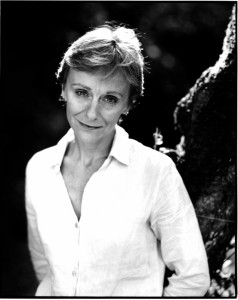 Nicci Gerrard is one half of the writing team, Nicci French. On day nineteen of National Novel Writing Month, Nicci talks to us about the challenges and advantages of writing as part of a team
Nicci Gerrard is one half of the writing team, Nicci French. On day nineteen of National Novel Writing Month, Nicci talks to us about the challenges and advantages of writing as part of a team
Writing can be solitary and also rather frightening – and sometimes it can feel like going mad (and I write in an attic). Writing with Sean is less solitary and less frightening, and there’s something rather exhilarating about going mad with another person – folie a deux. In many ways the actual process of writing isn’t so different from when I write solo novels, because Sean and I actually never write together (we did try once, at the end of our first book, The Memory Game, in an act of symbolic unity – but it was dreadful: we took about an hour to come up with one drab sentence, and squabbled throughout).
There are things that are straightforwardly lovely and fun – like the planning, when we go for long walks, or sit over coffee and tea and wine, and bounce ideas off each other without fear of being ridiculous. But usually the advantages are also the challenges – what’s good about writing together can also be what’s hard. We have to trust each other and to be vulnerable in front of each other. We have to allow the other to edit an even to erase our precious words. And there’s nowhere to hide – most relationships thrive with areas of separation, with boundaries .
A Moment With…Cathy Kelly
 Earlier, we heard from author, Deborah Lawrenson about how she deals with the mid-book slump and now we catch up with Cathy Kelly to see how she deals with that dreaded mid-book stall…
Earlier, we heard from author, Deborah Lawrenson about how she deals with the mid-book slump and now we catch up with Cathy Kelly to see how she deals with that dreaded mid-book stall…
I keep writing and tell myself I am an idiot about a hundred times. It’s such a dreadful thing to go through and I go through many of them with each book, and I force myself to stay at the computer, when really, a good walk helps. What I’ve written still looks dreadful when I come back but I am somehow calmed!
Cathy Kelly is the best-selling author of The Honey Queen, Just Between Us and The House on Willow Street. Her latest novel, It Started With Paris was released by Orion in October 2014. Read our interview with her by clicking here.
A Moment With…Deborah Lawrenson
 Monday has rolled around once again and we are now over halfway through November and National Novel Writing Month. Most of the people taking part will be over 25,000 words into their NaNoWriMo novel (or not even close if you are having a writing month like mine.) At this stage, it’s very easy to fall into the mid-book slump. Later on today, we will be hearing from Cathy Kelly with her advice on how to conquer the mid-book slump but first, we hear from the author of The Sea Garden, Deborah Lawrenson. She gives us her advice on what she does to get through it.
Monday has rolled around once again and we are now over halfway through November and National Novel Writing Month. Most of the people taking part will be over 25,000 words into their NaNoWriMo novel (or not even close if you are having a writing month like mine.) At this stage, it’s very easy to fall into the mid-book slump. Later on today, we will be hearing from Cathy Kelly with her advice on how to conquer the mid-book slump but first, we hear from the author of The Sea Garden, Deborah Lawrenson. She gives us her advice on what she does to get through it.
The mid-book slump is a genuine threat. For me, it’s the moment when the thought strikes that what I’ve written so far might all be a load of rubbish, an implausible story and so tangled that any readers will rip it to shreds. How do I get over it?
I just walk away from it for a few days. I don’t stop working, though. I keep a notebook for each book, beginning with ideas, details of characters, reminders to myself, and whole passages of writing I’ve played around with. This is the time to re-read the notebook, and keep it close to jot down my thoughts.
Novel Kicks Chats To: Jo Mazelis
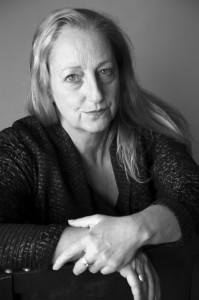 Jo is the author of non-fiction, poetry and short stories. Her first novel, Significance was released by Seren Books last month. We had a chat with Jo about her book, her ideal dinner guests and her favourite word…
Jo is the author of non-fiction, poetry and short stories. Her first novel, Significance was released by Seren Books last month. We had a chat with Jo about her book, her ideal dinner guests and her favourite word…
Hi Jo, thank you so much for joining us. Can you tell us about your novel, Significance and how the idea originated?
The idea for the novel came from two sources; first, a sort of unease about reading and watching stories about murder. Like a lot of people I have enjoyed the recent Nordic Noir TV series The Killing and The Bridge, and I’ve also enjoyed novels on the same theme. On the other hand real murder as it hits our headlines is brutal and awful and it has often been said that while we remember the names of the killers the victims’ names are forgotten. I think the book is also informed by a series of murders in the town where I lived of three girls the same age as me at the time. Two of them had been to the same club as my friend and I on the night they died and so obviously this had an impact, and while I never knew them I have never forgotten them. So it was exploring these memories and ideas that provided the backbone of the book.
Out of all the books you’ve read, which three have made the most impact on you?
So many books come to mind, but for different reasons – if I think about impact my first thoughts go to those books that had a real emotional impact – for example, Sophie’s Choice by William Styron, one passage of which made me weep loudly and uncontrollably on the London underground. Edna O’Brien’s The Country Girls Trilogy has also remained memorable for its tragicomic scenes and O’Brien’s droll understated humour. Ian McEwan’s collection of short stories, First Love, Last Rites impressed for the strangeness of the situations his characters found themselves in, the borderlands of loneliness and love with dark undertones of decay.
A Moment With…. Margaret James
 Day twelve of National Novel Writing Month. So far we’ve heard from Jill Mansell who talked about planning a novel, Victoria Fox who gave us advice about discipline and Milly Johnson who chatted to us about heroes. Today, Margaret James joins us. She talks to us about what elements she believes creates a great story.
Day twelve of National Novel Writing Month. So far we’ve heard from Jill Mansell who talked about planning a novel, Victoria Fox who gave us advice about discipline and Milly Johnson who chatted to us about heroes. Today, Margaret James joins us. She talks to us about what elements she believes creates a great story.
A great story needs a great premise – think of the tag lines and/or memorable quotes from some of the movies you’ve seen and you’ll soon come up with one yourself. Here are a few to get you thinking.
Love means never having to say you’re sorry.
You killed my father so prepare to die.
Houston, we have a problem.
Toto, I have a feeling we’re not in Kansas any more.
A Moment With…Milly Johnson
 On day eleven of National Novel Writing Month, Sunday Times best-selling author, Milly Johnson joins us today as we talk about perfectly imperfect heroes.
On day eleven of National Novel Writing Month, Sunday Times best-selling author, Milly Johnson joins us today as we talk about perfectly imperfect heroes.
When I am thinking up the perfect hero, the first thing I do is make him (ironically) imperfect. A totally perfect hero would be too daunting. George Clooney belongs on a pedestal, not wandering around a car boot sale on a Sunday morning. My heroes have flaws, they have made mistakes in life and become stronger people because of that. They are attainable and interesting. They have a good work ethic and are kind to animals. I could not write convincingly about a hero who kicked cats and preferred life on the dole. Flaws make a hero believable, but you have to find the right balance. A hero with too many flaws would be a pain in the butt and unattractive to readers. A good starting point is writing about someone who would be imperfectly perfect for you. Trawl the internet and find someone you like so you have a visual in your head when you are writing about him.
Lookswise… well, the faces I find most attractive have character. Features might not be flawless, but together they work. My hero’s nose may be slightly large, but on a strong face, a small straight nose would look ridiculous (analyse Liam Neeson’s features – small eyes, crooked nose, thin lips – but dynamite when placed together!). Strong female leads need even stronger men. I would have thought that 99.9% of women find being cared for and protected by someone physically and mentally strong a turn-on.
A Moment With…Victoria Fox
 Day seven of National Novel Writing Month and Victoria Fox talks to us about finding the discipline to write.
Day seven of National Novel Writing Month and Victoria Fox talks to us about finding the discipline to write.
One of the questions I’m most often asked is how I find the discipline to write. Well, the answer is simple. Writing is my job, and, like any job, I have to get up every day, sit down and get on with it. Sure, sometimes it’s hard. Sometimes I feel like doing just about anything if it means getting away from my desk. But if I worked in an office, say, I couldn’t just not turn up one morning because I’d decided I’d really rather stay in bed and watch re-runs of Frasier. I’m a firm believer that if you sit down with your book for long enough, the words will come. They might not be the right words first time, but they’ll move your story forward and keep your plot turning over.
When you’re on a roll, everything is brilliant. When you’re feeling creatively sapped, it’s an effort. And if you don’t have a book contract in place, that’s the hardest bit. Will it be worth it? Will anyone read it? Is it any good? These are questions the vast majority of unpublished writers, including me, have asked ourselves. Discipline, then, becomes something different. It comes from deep inside. You have to believe, in your core, that you’re going to finish this book. You’re not going to do it for anyone else except you – because you want a completed novel and you can’t let your characters float in uncertainty for the rest of time. The publishing contract is the golden prize but it’s not a given. Discipline stems from your own personal desire to write.
A Moment With…Jill Mansell
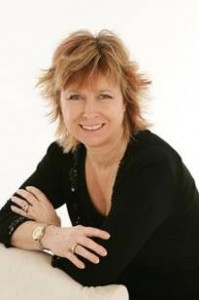 We are now on our fifth day into National Novel Writing Month. How is everyone doing?
We are now on our fifth day into National Novel Writing Month. How is everyone doing?
All throughout November, to coincide with National Novel Writing Month, we will be bringing you advice on aspects of writing from a variety of authors including Ali McNamara, Jane Fallon and Nicci Gerrard.
Today, we catch up with best-selling author, Jill Mansell who is talking about planning that novel. She says:
The trouble with planning out a whole novel’s worth of plot in advance is that you are bound to get much better ideas during the course of the book that knock the initial careful plans completely off course and render them useless. Since it’s so important to have the best plot possible, I now only plan it out in the very vaguest of ways, with Post-It notes stuck to a huge length of paper.
NaNoWriMo Author Advice: Day Thirty
It’s day thirty and the last day of National Novel Writing Month. Giovanna Fletcher, the author of Billy and Me offers advice about first drafts and sitting down to write…
Realise that you will occasionally look at what you’ve written and think it’s crap. Don’t panic at that. Just sit down and write. You will get distracted, it’s inevitable, just make sure you give yourself a good telling off and get back to work. Give yourself a target word count everyday. Something realistic and achievable. My target is 1,500 a day – that might seem a small amount to some people, but it works for me.
NaNoWriMo Author Advice: Day Twenty-Nine
 On day twenty-nine of National Novel Writing Month, Jon Rance, the author of Happy Endings, joins us to talk about the internal editor…
On day twenty-nine of National Novel Writing Month, Jon Rance, the author of Happy Endings, joins us to talk about the internal editor…
There’s a reason why publishers have editors and why every writer needs one. Because it’s a different job than being a writer. The same applies when we’re writing a novel. Writing is writing, it’s creative and visceral. It’s the difference between designing a house and building one. When you’re writing, be a writer. When you’re editing, be an editor, but never confuse the two.
NaNoWriMo Author Advice: Day Twenty-Eight
Jane Fallon joins us for day twenty-eight of our NaNoWriMo Author Advice. Jane’s books include Getting Rid of Matthew and Foursome. Her new book, Skeletons, is out next year. Jane gives us her five tips for new writers.
1. Keep moving forward. Don’t get stuck editing the same passage over and over again. There’s time for that later. I think that a first draft is all about getting the whole story down on paper as quickly as you can, and then sitting back and assessing what you’ve got.
2. If you have a block write through it. Don’t give up because you are stuck on a passage that’s going to be difficult to write. Write a version of it, however bad. Eventually you’ll hit a point where the story flows again. And then it’ll be easy to go back and rewrite.
3. Don’t think you have to write in perfect, grammatically correct, English. You’re Continue reading
NaNoWriMo Author Advice: Day Twenty-Seven
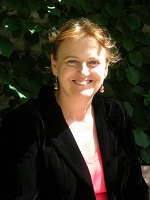 We’re almost at the end of National Novel Writing Month. Today, Trisha Ashley, who’s latest book, Wish Upon a Star was released by Avon earlier this month, talks about finding your muse.
We’re almost at the end of National Novel Writing Month. Today, Trisha Ashley, who’s latest book, Wish Upon a Star was released by Avon earlier this month, talks about finding your muse.
As readers of my newsletter know, Muse slipped into my head and took up residence while I was reading Paradise Lost at school and then refused to leave. At the time I took him at face value, but I’m pretty sure now he isn’t a real muse at all, because he’s male, steely-blue, wears a lot of leather, is winged, has talons and is devilishly handsome, if you like that kind of thing. Everyone else seems to have a fairly useful female Muse, but no – I have to be landed with a creature who needs to be arm-wrestled into submission every morning.
But then, that’s not such a bad thing, because there’s no point in wafting around looking soulful and waiting for the Muse of Inspiration to stop flitting round the room and land. No – get a firm grip and tell him or her to jolly well get on with it, and then soon the only thing flying will be your novel.
NaNoWriMo Author Advice: Day Twenty-Six
 Lisa Jewell joins us for day twenty-six. The author of Ralph’s Party and The House We Grew Up In, talks about finding the discipline to write…
Lisa Jewell joins us for day twenty-six. The author of Ralph’s Party and The House We Grew Up In, talks about finding the discipline to write…
It’s taken me many years and many books to get to the point where I could call myself a disciplined writer and the turning point for me was when I realised I couldn’t work anywhere with broadband or wifi. So now I take my laptop to a cafe to write every day, just for two to two and a half hours. I have yet to have a day when I didn’t get to my 1000 word goal. Sometimes I even finish early and go and mooch around the shops for a while. It’s all about knowing your own limitations and working around them. It’s also about routine. The best gift for a hard-working novelist is for every day to be the same as the last!
Related articles
NaNoWriMo Author Advice: Day Twenty-Five
 Fiona Walker, the author of The Summer Wedding and The Love Letter joins us for day twenty-five of National Novel Writing Month. She’s discussing Character vs. Plot.
Fiona Walker, the author of The Summer Wedding and The Love Letter joins us for day twenty-five of National Novel Writing Month. She’s discussing Character vs. Plot.
I’d say that characters are more important than plot because it’s really good, believable characters that ultimately create plot. That said, you need a strong kernel of a structural idea to place the characters into from the start – it can be a simple as two contrasting characters falling in love, meeting after a long absence, both wanting the same thing that only one can have etc. I find that if my characters aren’t established enough, the plot tend to become more and more extreme and farcical to try to keep the reader engaged, whereas really loveable, rounded characters should achieve that engagement in the first place
NaNoWriMo Author Advice: Day Twenty-Four
 We’re into the last week of National Novel Writing Month and on day twenty-four, Margaret James, the author of The Wedding Diary and The Silver Locket joins us to talk about creating good supporting characters….
We’re into the last week of National Novel Writing Month and on day twenty-four, Margaret James, the author of The Wedding Diary and The Silver Locket joins us to talk about creating good supporting characters….
Make sure your supporting characters add interest and depth to the central story, as opposed to start telling a story of their own, distracting the reader from the fates of the hero and heroine and splitting your story in two.
NaNoWriMo Author Advice: Day Twenty-Three
 Jill Mansell is the best-selling author of Don’t Want To Miss a Thing and Rumour Has It. She joins us on day twenty-three of NaNoWriMo to talk about what makes a perfect hero….
Jill Mansell is the best-selling author of Don’t Want To Miss a Thing and Rumour Has It. She joins us on day twenty-three of NaNoWriMo to talk about what makes a perfect hero….
A perfect hero? Easy – all the good aspects and none of the less enticing ones that real men tend to have! Seriously, just make the hero someone you would LOVE to meet, both physically and mentally. But most of all, give him a charismatic personality. Identikit characters let down so many otherwise well written books. And good luck to everyone doing NaNoWriMo!
NaNoWriMo Author Advice: Day Twenty-Two
 We are almost at the end of National Novel Writing Month. On day twenty-two, Sophie Duffy, the author of The Generation Game and This Holey Life, talks about what to do when you’re working on your draft and you hit the stage where you’re flagging…
We are almost at the end of National Novel Writing Month. On day twenty-two, Sophie Duffy, the author of The Generation Game and This Holey Life, talks about what to do when you’re working on your draft and you hit the stage where you’re flagging…
Write in different places. In the car. In a cafe. With a writing buddy. Read a book. Watch a film. Listen to a radio drama. Have a long bath or a dog walk or a swim, where you can wrestle, really wrestle, with a tricky plot point. (And remember that every plot difficulty can be overcome. You’re in charge.) Write long hand. On lined paper. On plain paper. In a beautiful notebook. You will see the text in a different way and have an altered perspective on your writing. And if you are really stuck ask the question: what is the worst thing that can happen to my character right now?
NaNoWriMo Author Advice: Day Twenty One
 It’s day twenty one of National Novel Writing Month. Talli Roland, the author of Last Christmas and The Pollyanna Plan, chats about finding the time to write…
It’s day twenty one of National Novel Writing Month. Talli Roland, the author of Last Christmas and The Pollyanna Plan, chats about finding the time to write…
With a young baby and masses of deadlines heading my way, finding the time – or making the time – to write has become of critical importance. For me, setting targets and creating a routine is the only way to do it. If I don’t schedule in the writing hours, I know they won’t happen! Whether it’s getting up at five in morning or squeezing in a few words before bedtime, I love ending the day feeling like I’ve accomplished my goal.
NaNoWriMo Author Advice: Day Twenty
 It’s day twenty of National Novel Writing Month. Paige Toon, the author of Johnny’s Girl and The Longest Holiday talks about the internal editor….
It’s day twenty of National Novel Writing Month. Paige Toon, the author of Johnny’s Girl and The Longest Holiday talks about the internal editor….
If I let my internal editor take over, I would never write a book a year – let alone two. It used to take me more time to write the first fifth of my books than the entire rest of it – mainly because I kept reading over that first fifth again and again, editing it over and over, instead of letting my thoughts flow through to the rest of the book. Far better to push on and come back to the early stuff later when you have a much better overall view of what the book needs. Of course, it’s easier said than done. I’m still a total control freak!
NaNoWriMo Author Advice: Day Nineteen
Chrissie Manby, author of Flatmates and Kate’s Wedding, joins us for day nineteen of our NaNoWriMo Author Advice. She tells us about the most important thing to remember when writing a first draft…
The most important thing to remember is that we live in a digital age. You don’t have to worry about saving paper. Stick down every sh*tty sentence that comes into your head. Write, write, write and edit afterwards. Editing as you go will only slow you down.
NaNoWriMo Author Advice: Day Eighteen
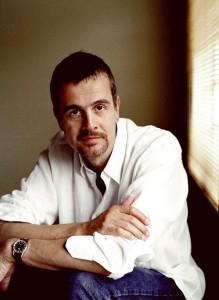 It’s day eighteen of NaNoWriMo. Crime author, Mark Billingham talks to us about creating suspense…
It’s day eighteen of NaNoWriMo. Crime author, Mark Billingham talks to us about creating suspense…
Crime writers are often asked how to create suspense. Now, of course there are tricks of the trade and we all use our fair share of twists and cliffhangers. We all choose when and how to reveal key pieces of information. BUT, for me, they key to creating genuine suspense is really very simple. You need to give the reader characters with whom they can genuinely engage. If you do that, if you create well-rounded characters, you will have suspense from the very first page.
NaNoWriMo Author Advice: Day Seventeen
We are on day seventeen of NaNoWriMo and today, Rob Pateman, the author of The Second Life of Amy Archer, talks to us about keeping your reader gripped….
Keep your readers gripped by giving them enough new information/action to keep them guessing and interested – but not so much that it falls onto them in one go. Pace is vital.
If you’re not sure if your ‘reveals’ are in the right place, make a graph with chapter number on the left and plot on the bottom. Chart each plot point/reveal with a mark by the chapter it appears in. Your flat points will soon be exposed.
NaNoWriMo Author Advice: Day Sixteen
On day 16 of our NaNo Author Advice, author of The Radio, M. Jonathan Lee tells us about the feeling you have when the first draft is done…
“It took me an age to actually sit down and start writing. All the fears as to whether I could actually do it and whether I was good enough. And then, one day I sat down and I started.
All you need to do it sit down and start. Write, write and write. Forget quality control. Get your story down, let the words flow from your brain to the page. Live and feel your story. Become the characters. And keep the momentum going by continuing to write. Whenever you can.
The feeling when it’s all down is immense. You did it, you told the story that you dreamed you would. You are halfway there. And now your story is a huge screwed up ball of paper that with a lot of careful editing will soon have all the creases flattened out.”
NaNoWriMo Author Advice: Day Fifteen
We’re midway through National Novel Writing Month. Well done to everyone who is still going toward that 50,000 word goal. Author, Sophie Kinsella has some great advice for the halfway point…
Halfway through your project it will all seem impossible and you will be tempted to jack it in and begin another, far more exciting idea. Trust me, that idea will get difficult halfway through, too. Don’t be afraid to experiment. You may not find your voice or style straight away. Write the book you would love to read yourself.
NaNoWriMo Author Advice: Day Fourteen
 On day 14 of NaNoWriMo, Victoria Fox chats to us about editing.
On day 14 of NaNoWriMo, Victoria Fox chats to us about editing.
My advice? Keep going, keep going, keep going. Don’t look back. If I stop after every chapter and try to edit what I’ve done, I get sucked into changes and tweaks and I never push on with the word count. This can shake your confidence, especially if you’re a perfectionist. So much will change when you’ve finished – scenes you thought were terrible suddenly have a new significance; likewise others you loved might no longer be needed. You can’t know your parameters until you’ve written ‘The End’ and you have an entire book. Keep going until you get there, a little every day.
For more information on Victoria, visit http://www.victoriafox.net/
NaNoWriMo Author Advice: Day Thirteen
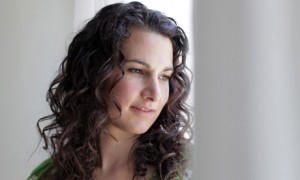 It’s day thirteen of National Novel Writing Month. Today, Michele Gorman, the author of Single in the City and Christmas Carol, talks about recurring characters…
It’s day thirteen of National Novel Writing Month. Today, Michele Gorman, the author of Single in the City and Christmas Carol, talks about recurring characters…
Hi Laura, thanks for asking me on the blog today, and best of luck to everyone participating in NaNoWriMo!
Writing recurring characters is a bit like visiting an old friend. Of course you love her, but you also know all about her flaws. And so do your fans.
Plus: You already know the character. This makes it easy to put her into a new situation and know how she’ll behave.
Minus: You already know the character. It can be difficult to sustain your enthusiasm for the book over 80,000-100,000 words.
Plus: Continue reading
NaNoWriMo Author Advice: Day Twelve
Day twelve of National Novel Writing Month. Freya North gives us her writing advice.
Write because you want to tell stories, not because you ‘want to be a writer’
Look after your posture – this is ESSENTIAL!
Don’t spend too long faffing and editing – that’s just a fancy way of procrastinating.
NaNoWriMo Author Advice: Day Eleven
 Matt Dunn is the author of A Day at The Office. On day eleven of National Novel Writing Month, he tells us how we need a good plot…
Matt Dunn is the author of A Day at The Office. On day eleven of National Novel Writing Month, he tells us how we need a good plot…
Whether you’re an author writing a novel, a gardener on an allotment, or an evil genius planning to take over the world, if there’s one thing you need, it’s a good plot. Assuming you’re reading this because you’re doing NaNoWriMo (so we’re talking about novels here), put simply, a plot is the sequence of events that make up a story – and while the order of those events (and of course, the events themselves) are up to you, getting that order (and the events) right is crucial if you’re going to engage the reader. I’m a romantic comedy novelist, and while everyone knows how romantic comedies go (girl meets boy, stuff happens, girl and boy end up together), it’s always helped me to think about my plots (the stuff that happens) not as HOW they get together, but as what STOPS them from getting together. Some writers plot their whole novels before writing a word, others just sit down, start writing, and see how the plot develops. I’ve tried both approaches, and probably prefer the latter. But if you like to plot beforehand and are having trouble, you’ll be pleased to hear seven ready-made ones already exist for you to choose from for FREE (don’t believe me? Just type ‘The Seven Basic Plots’ into Google). Presumably you know the start and end points of your novel – then ‘all’ you need to do is pick the one that applies to your story/setting/characters and get writing!
NaNoWriMo Author Advice: Day Ten
Day Ten of National Novel Writing Month. Today’s advice comes from best selling author, Cecelia Ahern.
NaNoWriMo Author Advice: Day Nine
 Day Nine of National Novel Writing Month. Julie Cohen, author of Dear Thing, talks about writing space:
Day Nine of National Novel Writing Month. Julie Cohen, author of Dear Thing, talks about writing space:
While I need to have a permanent writing space, somewhere I can spread out and make as much of a mess as I like, I often find that changing where I write can help me be more productive. Last week I spent eight hours writing in a cafe. I was stiff and hyper-caffeinated afterwards, but I got a lot of work done. My local library also has study carrels, which are great because they’re anonymous cubes with no distractions at all…though occasionally I think I startle the person in the next carrel by laughing aloud! Sneakily, against the rules, I smuggle a flask of tea into a carrel and spend hours making that bland space full of my imaginary characters.
NaNoWriMo Author Advice: Day Eight
 It’s day eight of National Novel Writing Month. Ali Mcnamara talks about what you should be writing….
It’s day eight of National Novel Writing Month. Ali Mcnamara talks about what you should be writing….
When people ask me for advice about writing, I always say the same thing: Write what YOU love. Then your writing will come across as genuine, and heartfelt, and if you enjoy it reading it back, then someone else definitely will.
Also if you think your story is just as good or preferably better than those you’re seeing on the bookshelves, then never give up on your dream, no matter how many rejections you may get at first. Because someone some day will read your work and love it just as much as you!
NaNoWriMo Author Advice: Day Seven
 On day seven of our NaNoWriMo advice feature, Adele Parks says that you need to take writing seriously…
On day seven of our NaNoWriMo advice feature, Adele Parks says that you need to take writing seriously…
‘Write. Seriously, it astonishes me how many people tell me they want to be a writer but then confess they never write anything more elaborate than a shopping list. Write everyday even if it’s only for 20 minutes. Discipline is key. You also need to listen. Be inspired by everything that is going on around you.’
NaNoWriMo Author Advice: Day Six
 Day Six of National Novel Writing Month and I hope that everyone is having a great first week. Continuing on with our NaNoWriMo Author Advice, Sue Moorcroft, the author of Want to Know a Secret and All That Mullarkey, tells us about why she thinks social networking is important for writers:
Day Six of National Novel Writing Month and I hope that everyone is having a great first week. Continuing on with our NaNoWriMo Author Advice, Sue Moorcroft, the author of Want to Know a Secret and All That Mullarkey, tells us about why she thinks social networking is important for writers:
‘I find social networking useful in all kinds of ways. It makes me visible, it allows readers in interact with me (which is a privilege) and allows me to get news about new books or workshops out into the world. It’s also a great source of research – not so much factual research, but opinions and ideas. For example: Is it OK to use text to ask for a second date? (Answer: yes!) My hero’s going to a fancy dress party. What should he go as that’s hot? (Answer: devil in lycra.) Twitter and Facebook seem to know the answers to any question in the world.’
For more information on Sue and her books, visit her website at www.suemoorcroft.com
NaNoWriMo Author Advice: Day Five
On the fifth day of National Novel Writing Month, Lucy Clarke, author of The Sea Sisters, talks about who you should write for…
Write for yourself. Write the type of book you love reading, or on a subject you’re passionate about. That honesty will feed through your work.
Be open to inspiration. It’s all around us. Start keeping a notepad and pen on your person and make yourself write one thing in it every day, whether it’s a snippet of conversation, an interesting sight, or something you watched on TV that caught your imagination. Inspiration is out there; you just need to tune in.
NaNoWriMo Author Advice: Day Four
We’re on day four of National Novel Writing Month. Today, Ilana Fox, the author of Spotlight and All That Glitters talks about the importance of finding the right place to write.

